You have no items in your shopping cart.
Bordeaux
Vignobles Bayle-Carreau
(19 customer reviews)
Vignobles Bayle-Carreau comprises six Bordeaux châteaux on the right bank of the river, in the Côtes de Bourg and Blaye Côtes de Bordeaux appellations. The group was born of the marriage of two families who vowed to unite both in life and in the running of the estate, much to the delight of enthusiasts who have the chance to taste the exquisite wines from the family's various châteaux. Find out more
 Recommended by
Recommended byWine Enthusiast - Decanter - Le Guide Hachette
-
Estimated delivery between 24 and Apr 26,
-
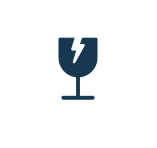
Garantie anti-casse :
Prise en charge totale
The winemaker
The Bayle-Carreau vineyards are located near the Gironde estuary. They are divided into five châteaux and own the Blaye Côtes de Bordeaux and Côtes de Bourg appellations. This diversity is expressed in the wines produced.
For châteaux in the Blaye Côtes de Bordeaux appellation, the grape varieties grown are Merlot, Cabernet Sauvignon, Malbec and Cabernet Franc. For those in the Côtes de Bourg appellation, the grape varieties grown are Merlot, Cabernet Sauvignon and Malbec.
Vignobles Bayle-Carreau is, as one might expect, the result of the union of the Bayle and Carreau families. Each family had already gone its own way. On the one hand, in 1852, Antoine Carreau acquired Château Barbé, an estate with optimal exposure. Under the impetus of his descendants, the vineyard was enlarged to double its original surface area. The estate was then handed down from generation to generation to Claude Carreau. The Bayle family followed suit, and in 1910, Émile Bayle acquired Château La Carelle. He ran the vineyard alongside his son André, who played a major role in the estate's renown. In 1952, André Bayle's daughter Jeanne-Marie married Claude Carreau. The families decided to join forces and continued to run their estates side by side.
This partnership enabled them to share the best practices of each estate, and to improve production quality and sales. Over the years, the Bayle-Carreau family successively acquired four additional estates: Château Pardaillan, Château Eyquem, Château Landreau and Château Sainte Clotilde. Today, the children and grandchildren of the founding couple are at the helm of the estate, promoting its wines internationally.
The wines of the Bayle-Carreau vineyards are therefore distinguished by their great diversity, due to the multiplicity of soils used: clay-limestone, limestone, siliceous, composed of gravel, clay, or red gravel. In addition to white and red wines, the Bayle-Carreau vineyards also produce Crémant de Bordeaux.
Château Barbé
A historic property of the family group, this 20-hectare estate is sometimes on a plateau, sometimes on hillsides, all of which benefit from a southern exposure optimal for ripening fruit. This vineyard produces three cuvées: a powerful, fruity red wine and two white wines, one dry and lively with marked citrus notes, the other sweet with exotic fruit aromas.
Château La Carelle
The Bayle family's first acquisition, Château La Carelle benefits from a particular geology as its soils are sandy-clay, which facilitates the working of the soil and lends a special aromatic profile to the house's red wine. This cuvée is supple and refined, expressing notes of raspberry and blackcurrant.
Château Pardaillan
Acquired in 1975 by Vignoble Bayle-Carreau, Château Pardaillan spearheads the family's commitment to preserving the environment. Farmed with respect for biodiversity and integrated viticulture, it produces a well-balanced, woody red wine with silky tannins.
Château Sainte Clotilde
The latest addition to the Bayle-Carreau family, straddling the communes of Blaye and Plassac, the south-facing exposure of the parcels facing the Gironde on a clay-limestone terroir means that Merlot performs wonderfully here, as does Cabernet Sauvignon, which finds a filtering soil. The manor house dominating the hillside was bombed in 1944 by the British during the reconquest of this German-occupied bank of the Gironde. The house was never rebuilt. This property is the driving force behind the estate's natural wines, with the 1st cuvée without added sulfites in 2020, a Terra Vitis and HVE3 certified vintage.
Château Eyquem
Château Eyquem is Vignoble Bayle-Carreau's flagship for wine tourism. It's here that the group offers tours and tastings of the company's wines, in particular the Côtes de Bourg Château Eyquem, an elegant, racy wine with excellent ageing potential, also produced using sustainable viticulture methods.
Château Landreau
The home of Cyril Jourdan, current CEO of Les Vignobles, Château Landreau was rebuilt from scratch after being completely abandoned. It has all the hallmarks of a vineyard of exceptional quality, as demonstrated by the house red wine, which is fruity yet characterized by a fine tannic structure.
The union of two families
For châteaux in the Blaye Côtes de Bordeaux appellation, the grape varieties grown are Merlot, Cabernet Sauvignon, Malbec and Cabernet Franc. For those in the Côtes de Bourg appellation, the grape varieties grown are Merlot, Cabernet Sauvignon and Malbec.
Vignobles Bayle-Carreau is, as one might expect, the result of the union of the Bayle and Carreau families. Each family had already gone its own way. On the one hand, in 1852, Antoine Carreau acquired Château Barbé, an estate with optimal exposure. Under the impetus of his descendants, the vineyard was enlarged to double its original surface area. The estate was then handed down from generation to generation to Claude Carreau. The Bayle family followed suit, and in 1910, Émile Bayle acquired Château La Carelle. He ran the vineyard alongside his son André, who played a major role in the estate's renown. In 1952, André Bayle's daughter Jeanne-Marie married Claude Carreau. The families decided to join forces and continued to run their estates side by side.
This partnership enabled them to share the best practices of each estate, and to improve production quality and sales. Over the years, the Bayle-Carreau family successively acquired four additional estates: Château Pardaillan, Château Eyquem, Château Landreau and Château Sainte Clotilde. Today, the children and grandchildren of the founding couple are at the helm of the estate, promoting its wines internationally.
The châteaux
The wines of the Bayle-Carreau vineyards are therefore distinguished by their great diversity, due to the multiplicity of soils used: clay-limestone, limestone, siliceous, composed of gravel, clay, or red gravel. In addition to white and red wines, the Bayle-Carreau vineyards also produce Crémant de Bordeaux.
Château Barbé
A historic property of the family group, this 20-hectare estate is sometimes on a plateau, sometimes on hillsides, all of which benefit from a southern exposure optimal for ripening fruit. This vineyard produces three cuvées: a powerful, fruity red wine and two white wines, one dry and lively with marked citrus notes, the other sweet with exotic fruit aromas.
Château La Carelle
The Bayle family's first acquisition, Château La Carelle benefits from a particular geology as its soils are sandy-clay, which facilitates the working of the soil and lends a special aromatic profile to the house's red wine. This cuvée is supple and refined, expressing notes of raspberry and blackcurrant.
Château Pardaillan
Acquired in 1975 by Vignoble Bayle-Carreau, Château Pardaillan spearheads the family's commitment to preserving the environment. Farmed with respect for biodiversity and integrated viticulture, it produces a well-balanced, woody red wine with silky tannins.
Château Sainte Clotilde
The latest addition to the Bayle-Carreau family, straddling the communes of Blaye and Plassac, the south-facing exposure of the parcels facing the Gironde on a clay-limestone terroir means that Merlot performs wonderfully here, as does Cabernet Sauvignon, which finds a filtering soil. The manor house dominating the hillside was bombed in 1944 by the British during the reconquest of this German-occupied bank of the Gironde. The house was never rebuilt. This property is the driving force behind the estate's natural wines, with the 1st cuvée without added sulfites in 2020, a Terra Vitis and HVE3 certified vintage.
Château Eyquem
Château Eyquem is Vignoble Bayle-Carreau's flagship for wine tourism. It's here that the group offers tours and tastings of the company's wines, in particular the Côtes de Bourg Château Eyquem, an elegant, racy wine with excellent ageing potential, also produced using sustainable viticulture methods.
Château Landreau
The home of Cyril Jourdan, current CEO of Les Vignobles, Château Landreau was rebuilt from scratch after being completely abandoned. It has all the hallmarks of a vineyard of exceptional quality, as demonstrated by the house red wine, which is fruity yet characterized by a fine tannic structure.

Registered since 03/05/2021

Château Barbe ,
33390 Cars
33390 Cars

5 wines available
between 8.5 € and 15 €
between 8.5 € and 15 €

159 wine's scans
on Twil application
on Twil application

Best rated wines on Twil :
You might like Voir tous les vins de la région
- -21%
- -30%
- -30%
- -25%

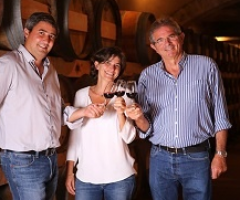
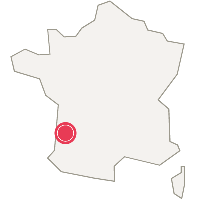











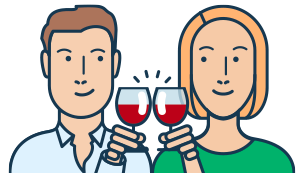













 TWIL - Achat de Vin
TWIL - Achat de Vin


